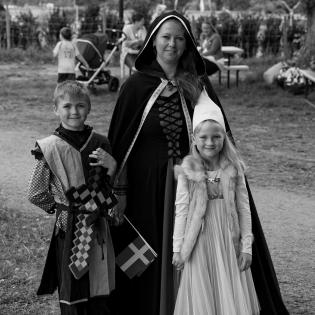Philanthropy Play
Youth role-play situations in which they are involved in philanthropic acts. They analyze the act of philanthropy.
- Brainstorm philanthropic acts.
- Role-play situations that call for generosity.
- simple props or costumes for the plays
- group copy of Handout: Coffee Shop Sharing
Instructions
Anticipatory Set:
Display a copy of Coffee Shop Sharing (handout below) or write and display original dialogue. Assign roles to four participants and have them read the parts aloud. Discuss the role-play. Ask whether this was an example of philanthropy and discuss why or why not. Review the definition of philanthropy.
Brainstorm examples of philanthropic acts that we might observe or take part in. Write the ideas on a board or chart.
Working in a group of 4-5, write a short role-play (five minutes or less) demonstrating an act of philanthropy. The role-play should be written in play format and have a speaking part for each person in the group. They may use simple props and costumes, if desired.
Each group performs their play. The other groups listen carefully so they can discuss the plays afterward.
After each play, discuss whether the philanthropic act shares time, talent, or treasure and keep a chart of the three categories. Discuss how the philanthropic act benefits the common good.
Philanthropy Framework
-
Strand PHIL.I Definitions of Philanthropy
-
Standard DP 01. Define Philanthropy
-
Benchmark E.1 Define philanthropy as the giving and sharing of time, talent, or treasure intended for the common good.
-
-
-
Strand PHIL.III Philanthropy and the Individual
-
Standard PI 01. Reasons for Individual Philanthropy
-
Benchmark E.1 Describe one reason why a person might give or volunteer.
-
Benchmark E.4 Give an example of how citizens act for the common good.
-
-
